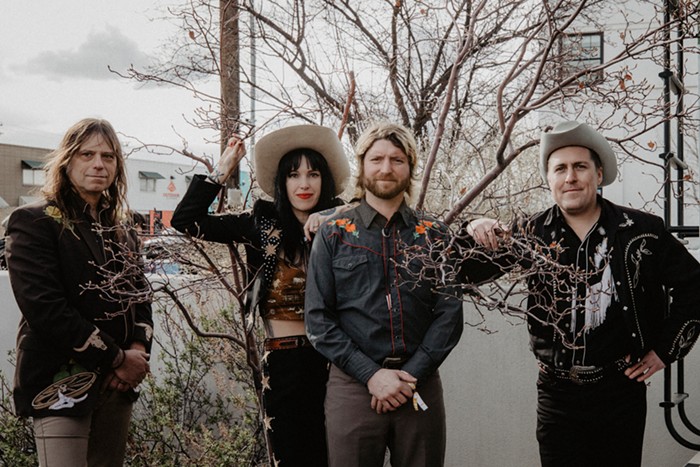It's been 40 years since the formation of the strangest rock band to ever achieve mass popularity, a band whose standing has waxed and waned with shifting fashions of music like a litmus test. In the heady days of prog, Yes stood as both the most extreme and most accessible of those woolly noodle-rockers—radio hits like "Long Distance Runaround" and "Roundabout" have undeniable melodies in their intertwined riffs. No band ever mined such melodic violence as on the epic "The Gates of Delirium" from 1974's Relayer, no band wove as gossamer a suite as "And You and I" from 1972's Close to the Edge, and no band ever laid as massive a turd as 1987's Big Generator.
They're all still around—for the most part. This year's reunion tour sees founding bassist Chris Squire joined by guitarist Steve Howe and drummer Alan White. But Jon Anderson will not be on board. "About a month before we were about to start rehearsals for the show," explains Squire, "he unfortunately had a problem with asthma and breathing. It's not out of the question that in the future he can come back, but whether he'll really be up for doing full-scale Yes touring, I'm not sure about." Benoît David, a Canadian Yes tribute band vocalist whom the band found via YouTube, will replicate Anderson's impossibly high voice. Rick Wakeman's son, Oliver, meanwhile, will be playing his father's keyboard parts.
The influence of the British band extends beyond sterile prog revivalists like Dream Theater and Queensrÿche, and their albums are more than nerdy soundtracks to mystical flights of fancy. For instance, the fecund and far-flung scene of medieval death metal owes bloody tribute to the opuses of Yes, and space rockers have cribbed as much from "Starship Trooper" as they have from Roger Dean's album covers. Freak folksters glean inspiration from the lush acoustics of "Your Move" while math rockers divine theorems from the rapid intricacies of "Heart of the Sunrise." More than just the granddaddies of British prog, Yes have developed a long history and a fiercely complicated aesthetic under the banner of one simple word.



















